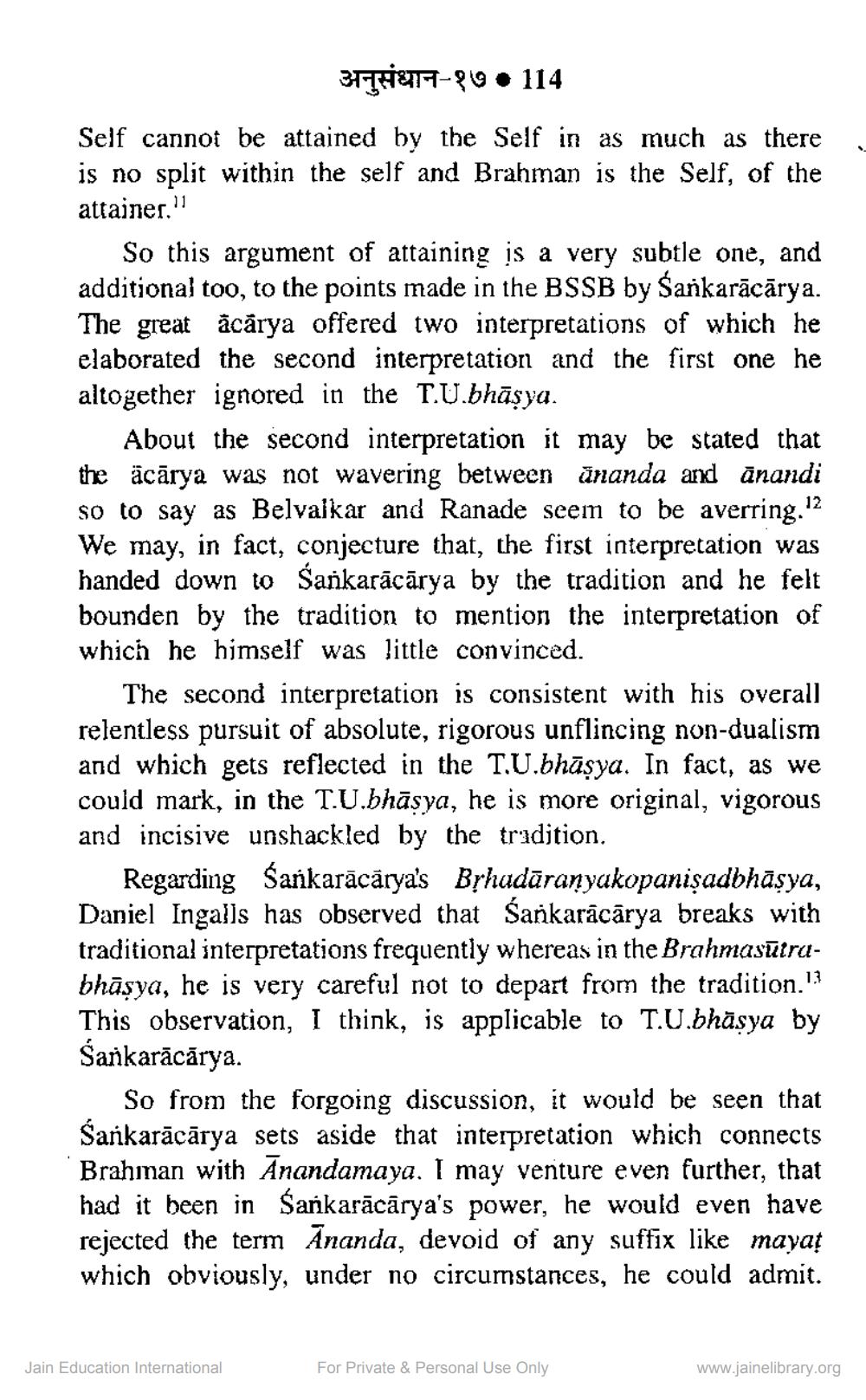________________
3
1
-89.114
Self cannot be attained by the Self in as much as there is no split within the self and Brahman is the Self, of the attainer."
So this argument of attaining is a very subtle one, and additional too, to the points made in the BSSB by Sankarācārya. The great acārya offered two interpretations of which he elaborated the second interpretation and the first one he altogether ignored in the T.U.bhāsya.
About the second interpretation it may be stated that the äcārya was not wavering between änanda and ānandi so to say as Belvalkar and Ranade seem to be averring. 12 We may, in fact, conjecture that, the first interpretation was handed down to Sankarācārya by the tradition and he felt bounden by the tradition to mention the interpretation of which he himself was little convinced.
The second interpretation is consistent with his overall relentless pursuit of absolute, rigorous unflincing non-dualism and which gets reflected in the T.U.bhāsya. In fact, as we could mark, in the T.U.bhāsya, he is more original, vigorous and incisive unshackled by the tradition.
Regarding Sankarācārya's Brhadāranyakopanişadbhāşya, Daniel Ingalls has observed that Sankarācārya breaks with traditional interpretations frequently whereas in the Brahmasūtrabhāsya, he is very careful not to depart from the tradition..? This observation, I think, is applicable to T.U.bhāsya by Sarkarācārya.
So from the forgoing discussion, it would be seen that Sankarācārya sets aside that interpretation which connects Brahman with Anandamaya. I may venture even further, that had it been in Sarkarācārya's power, he would even have rejected the term Ananda, devoid of any suffix like mayat which obviously, under no circumstances, he could admit.
Jain Education International
For Private & Personal Use Only
www.jainelibrary.org




